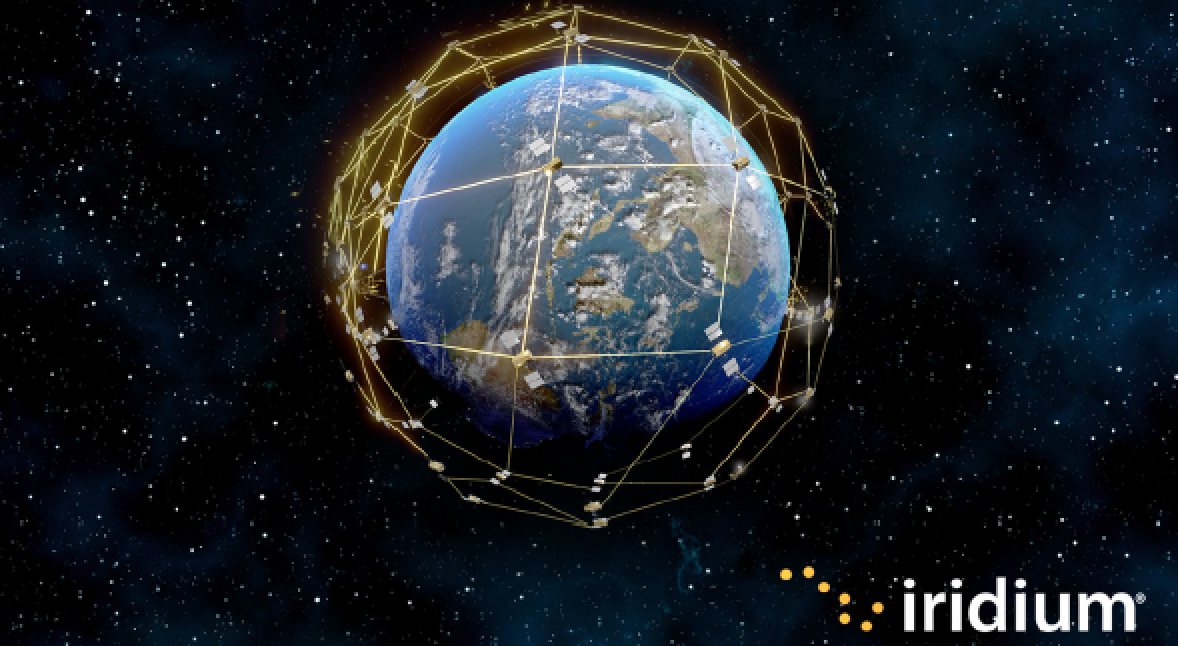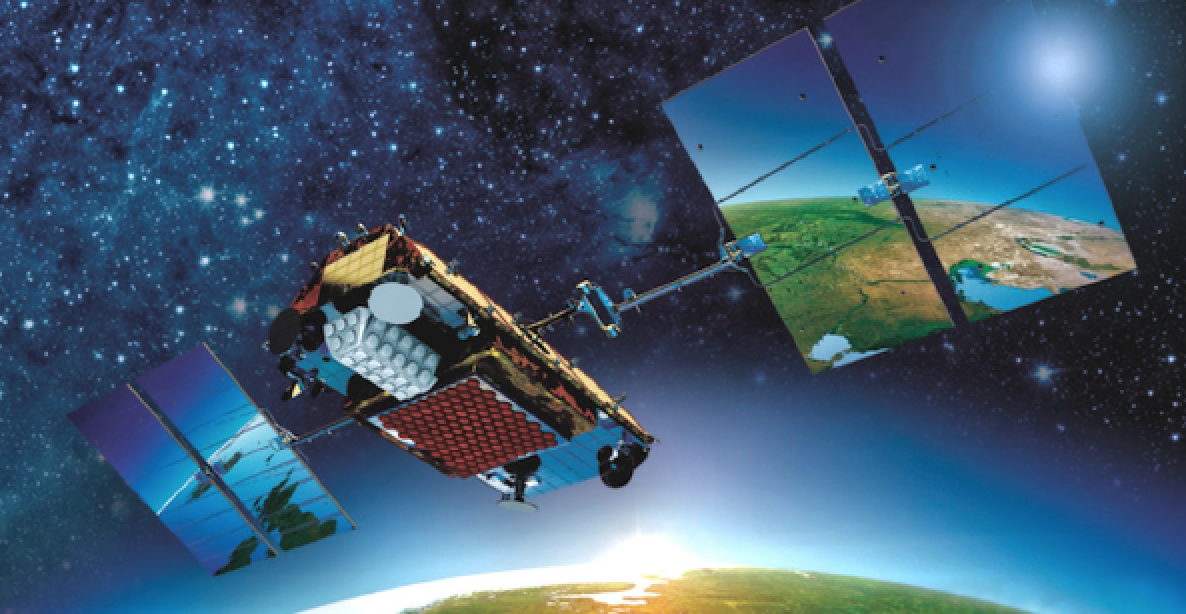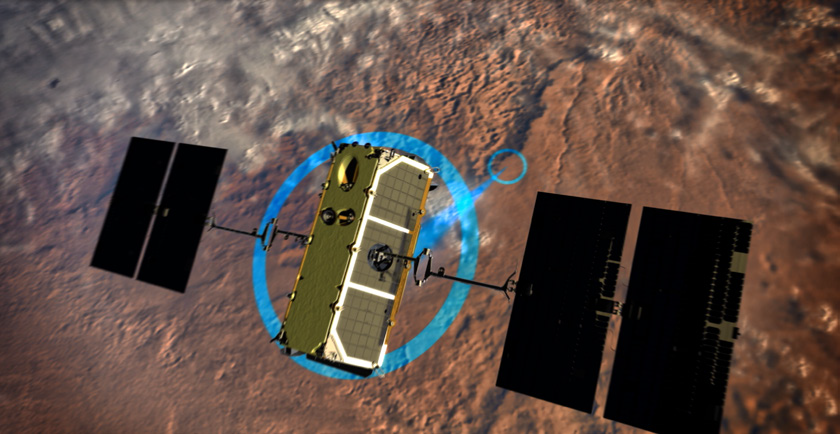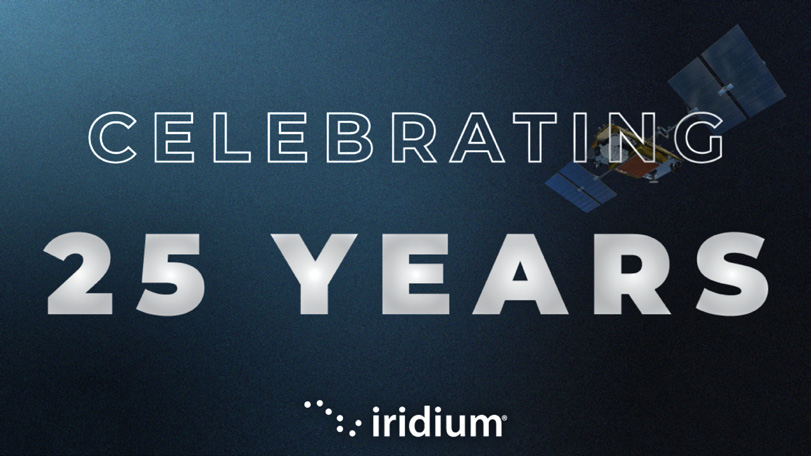Matt Desch is the Chief Executive Officer of Iridium Communications Inc., the only satellite communications company that offers truly global voice and data coverage. He has more than 40 years of experience in telecommunications management, and more than 30 years in the global wireless industry. Joining Iridium in 2006, Desch has been responsible for leading the innovation and growth of Iridium, which includes taking the company public on Nasdaq (IRDM) in 2009, completing the financing and development of Iridium® NEXT, the company’s $3 billion investment in upgrading the Iridium network with powerful new satellites, and launching Iridium Certus®, a multi-service broadband and midband platform enabled by the upgraded constellation.

With Desch at the helm, Iridium’s active subscriber base has grown from 150,000 in 2006, to more than two million today, and dramatically expanded its operational earnings and free cash flow. Desch serves as a member of the President’s National Security Telecommunications Advisory Committee (NSTAC) and is a member on the Board of Trustees of the Aircraft Owners and Pilots Association (AOPA) and the Board of Directors of Unisys, a global IT services firm. Desch holds a Bachelor of Science in Computer Science from The Ohio State University and a Master of Business Administration from The University of Chicago.
Good day, Mr. Desch... would you please give us a refresher on Iridium’s history and what drew you to the company?

Matt Desch
Matt Desch
The concept for the Iridium constellation was born out of the Motorola Strategic Electronic Division by founding engineers Bary Bertinger, Ken Peterson and Ray Leopold in 1987. They envisioned a satellite-based communications system designed to connect people on a global scale with handheld devices. A year later, Iridium as a project was born.
Iridium’s first satellites were launched in 1997 and, on November 1, 1998, the company launched commercial services. The occasion was marked with a ceremonial first call between then-Vice President Al Gore and Gilbert Grosvenor, chairman of the National Geographic Society and great-grandson of Alexander Graham Bell.
I was drawn to Iridium by the exceptional opportunity and challenge Iridium presented. In 2006, the company was a few years out of bankruptcy. However, I recognized the immense potential of its global network and the promising prospects in the Internet of Things (IoT) and personal communications market. Now, in my 18th year as CEO, I guess I’ve defied the trend where CEOs come and go every two to three years. I continue to be energized every day by the ongoing potential for Iridium and satellite communications.
What are some of the early challenges you faced?
Matt Desch
In my mind, growth was not the issue for Iridium; we were doing something that no one in the industry came close to imagining. My immediate challenge was tackling a complex next generation network replacement. I knew that if we could secure the necessary financing, Iridium would grow into a mature company capable of standing on its own and thriving in the long term. And we did.
As a team, we’ve steered Iridium through going public on the Nasdaq, successfully completed the largest technology refresh in space history with the Iridium NEXT campaign, launched Iridium Certus, revolutionized global aircraft surveillance with Aireon and so many more incredible milestones.
This year we surpassed two million active network subscribers and continue to be the only satellite communications company with truly global coverage and a laser-like focus on personal communications.
Reaching our network’s 25th anniversary, our accomplishments might give the impression of an easy journey. However, it’s been a 25-year-long overnight success story, forged through years of hard work. Startups might look to us for inspiration, thinking that rapid growth is within easy reach, but it demands time, a well-defined strategy, differentiation, and a sustained effort.
Building infrastructure before generating revenue is a norm in communications. However, if you can do that and last long enough, then you have a chance of generating cash flow without depending on financial markets to stay afloat.

Mr. Desch, what sets Iridium apart from other providers?
Matt Desch
Iridium’s key differentiator is our network, which is designed for personal communications to small, often battery-powered devices. Iridium’s vision is unique: to facilitate fast, one-to-one connections across the globe, whether on land, at sea, in the sky, or in remote areas. No other company can match Iridium’s global coverage, and that remains true to this day.
The industry recognized the importance of connectivity, but few grasped how technology would evolve to embed mobile solutions into even the smallest devices worldwide, from smartphones to cars and Uncrewed Aerial Vehicles (UAVs). Over the course of 25 years, expectations have evolved, and Iridium’s many technology partners have adapted every step of the way with a vast array of unique solutions.
Today, our global network provides connections unmatched by any other service provider. The Iridium constellation’s intersatellite links were revolutionary 25 years ago and still are today. They provide reliable, redundant coverage even in remote, high-latitude regions where no other provider does.
Iridium’s Low Earth Orbit (LEO) constellation is designed to provide stronger signals and fast connections through smaller antennas with lower power requirements. Our L-Band network is also more weather resilient than the frequencies used by many networks, providing reliable communications to users even in adverse conditions.
The path we selected certainly turned out to be a valuable one. Only Iridium delivers rugged, reliable connectivity that no other service providers match, everywhere — on top of Kilimanjaro, in the middle of the Pacific, or during a hurricane. With Iridium’s constantly moving satellites, you don’t face the same types of line-of-sight issues encountered by Geostationary (GEO) systems where, if you’re on the wrong side of a mountain or building, you’re out of luck.
Reflecting on 25 years, how would you characterize Iridium’s impact on SATCOM?
Matt Desch
When the Iridium network was launched 25 years ago, satellite communications were synonymous with big, expensive dishes perched on the roofs of buildings, gas stations, and large ships. There was no easy way to scale this technology down into smaller vehicles, aircraft, trucks, or discreet tracking devices and personal communicators.
Iridium was the pioneering voice that declared satellite communications could be democratized, available to all people and things, and deployed anywhere on the planet as a cost-effective solution that could enhance businesses, safety, and more. The U.S. Department of Defense (DoD) was one of our first clients. Recognizing that existing satellite systems fell short of their needs, they established a private network with us and remain one of our strongest relationships to this day.
We helped to spark a wave of investments in the 1990s that initiated “Space 2.0.” Recognizing the limitations of traditional cellular communication, industries — including maritime, energy, construction, aviation, and others — have expanded their reliance on satellite communications to improve cost efficiencies and keep their workers safe. The possibilities of Iridium’s applications are, essentially, limitless.
Our first-generation system inspired imitators and investments; many companies secured spectrum and L-band allocation but failed to achieve our success. Iridium’s innovations and business success have now helped inspire a “Space 3.0” and expanded industries in ways that we could only imagine 25 years ago.
Iridium’s success as a LEO operator is also unprecedented. When I joined the company, LEO was met with skepticism (“it only supports polar bears and penguins,” said one GEO operator), but as we became more successful, we transformed the industry’s perspective.
People looked at us and saw LEOs do make sense and work extremely well. The ability to make a connection close to the Earth, as opposed to far away from the Earth, is a smart technical and business idea that has been emulated many times. While others haven’t precisely replicated our path, they’ve followed our pioneering direction, a legacy of pride for the company.
Over the past 25 years, Iridium has made a positive impact in many industries. During times of disaster, Iridium is the go-to choice for emergency communication services when land-based networks are down. In 2011, we introduced Iridium Extreme®, the first satellite phone with an integrated SOS service, transforming global connectivity for emergencies.
With the successful completion of our second generation network, we launched Iridium Certus — a unique platform designed for the development of specialty applications and the world’s only truly global broadband service, offering on-the- move internet and high-quality voice access. The service enables mobile office functionality for deployed teams and two-way remote communication for assets, autonomous vehicles, trains, aircraft and ships at sea.
Iridium Certus is crucial for maritime safety, particularly in piracy-prone areas. The service offers discreet, anti-piracy solutions, enabling crews to communicate from safe rooms and stay connected with authorities.
In 2018, Iridium made maritime history by becoming the second-ever recognized provider of Global Maritime Distress and Safety System (GMDSS) satellite services, launching the world’s first truly global emergency service for seafarers, breaking a 20-year monopoly, promoting cost-effectiveness and democratizing its accessibility.

How important have partnerships been to Iridium’s growth and impact?
Matt Desch
During our most recent Investor Day in September, I described what we’ve been able to create over the course of our second- generation constellation investment as “an innovation engine for growth.” This means our own growth as a company, as well as the coalition of partners we’ve grown over the years. Our partner ecosystem leverages Iridium’s network and puts its power to work with innovative applications for a variety of different markets. And Iridium markets and sells through our partners and distributors, so they evolve with us — no competition, just enabling growth.
To me, celebrating 25 years of Iridium is about celebrating 25 years of accomplishments and innovation that weren’t easy to pull off.
It’s about celebrating the community we’ve been able to create with our network and technologies. It’s about boundless innovation and record successes that have positioned Iridium as a leader in connecting people and devices all over the world.
What are your thoughts regarding what’s next for SATCOM?
Matt Desch
A key trend is the convergence of satellite communications with other technologies. SATCOM will become more and more a part of the everyday experience and less of a niche, one-off investment. It will eliminate the concept of being “off the grid” and make the planet smaller and more accessible for people, businesses, travel, and exploration.
I also expect consolidation. After years of exuberance and lots of money spent on lots of ideas — many of them unsuccessful — a healthier set of companies will emerge as the next generation of growth platforms for the industry.

Standardization will be another theme for SATCOM. In the past, each satellite technology deployment was a costly, custom-built solution. However, during the next 15 years, we’ll see a trend where end user devices, such as the ones in our pockets, will be embedded with technology that allows them to connect with future satellites, including ours.
This will benefit consumers by reducing costs and increasing global accessibility. While this transformation will be challenging for satellite operators due to high capital requirements, it will lead to a more unified industry focus, eventually making satellite technology ubiquitous in everyday life. Your car, truck, snowmobile, or wave runner will be connected and trackable. Iridium is at the heart of this evolution, transforming satellites into personal communication tools — anywhere in the world.
I feel as though I can say — with some confidence — that what’s next for Iridium is what’s next for satellite communications, and this year we’ve paved the way for plenty of future success. Recent launches such as Iridium Certus 100 and Iridium Edge® Solar have empowered the expansion of our IoT capabilities, another monumental growth opportunity for Iridium and the SATCOM space at large.
That’s just a small part of it — Beyond Visible Line of Sight (BVLOS) capabilities, growth in voice and Push-To-Talk (PTT) services, continued research and exploration — we’re enabling so much connectivity and growth and only have plans to keep pushing the needle on what’s possible for satellite communications.
I’m delighted and proud to be a part of this innovation, proud of this team and what we’ve built, proud of where we’ve been, where we are, and where Iridium will aim next to ensure our world is connected.
www.iridium.com


